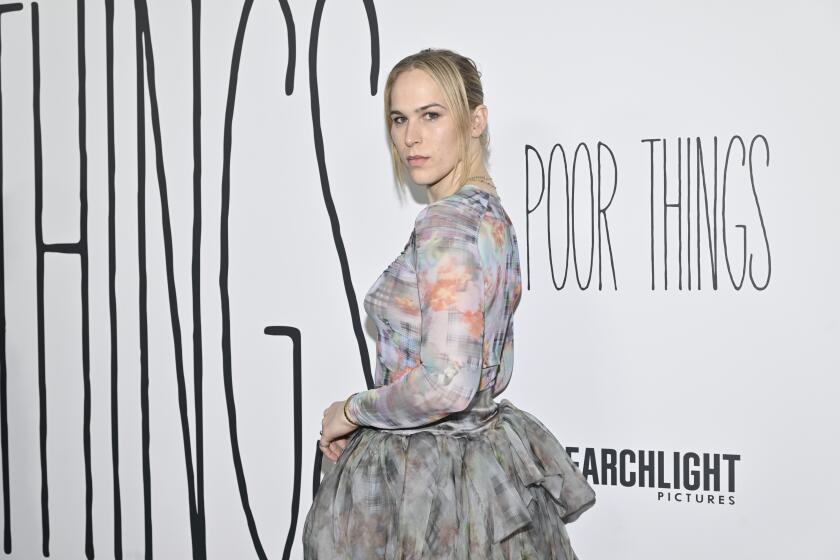‘Kennedys’ miniseries producer Joe Surnow breaking rules again
Television producer Joel Surnow defies tradition.
The creator of the long-running Fox show “24” flouted prime-time conventions with an adrenaline-fueled series that played out in “real time” — and remained on network television for eight seasons.
As the producer enters production on his latest TV project, the History Channel miniseries “The Kennedys,” Surnow is once again breaking rules. He set up what he’s calling a “virtual studio” — an independent production company in the mold of Aaron Spelling Productions and Carsey/Warner — to sell scripted television shows to broadcast and cable networks, without relying on network financing.
What prompted you to create your own company to handle production, distribution and financing — effectively bypassing the studio?
In the ‘90s, I worked for Stephen J. Cannell Productions. Cannell had basically a writer/producer-owned studio. He owned all of his own shows, including “The Commish,” “The A-Team” and “Hunter.”
From there, I was [the showrunner] on “La Femme Nikita.” That was a real opportunity to bring a show in on budget. … [That experience demonstrated] you can make a real lot of money, and you don’t have to have a big, massive “ER”-sized hit. I saw the business side come into play.
I started thinking, OK, that’s the way to do this. Around 2008, Paradigm and I sat down together and started talking about the model.
I had two other strategic partners, Asylum and Muse Entertainment. We went to TNT and, after six months of forging a deal, came up with a structure for us to own a pilot and, if it went to series, we’d own the series.
Unfortunately, the show didn’t get picked up. But the deal was in place. Months later, Asylum came to me and said the History Channel was interested in doing scripted television. They like the idea of “The Kennedys” being their first. So I went back to Muse and the three of us forged that deal.
Are you worried about assuming all the financial risk?
It is riskier for my partners and myself. I’ve had a fair amount of experience in bringing in shows on time and on budget. For five years on “Le Femme Nikita” I never exceeded $950,000 [the budget per episode]. One of the reasons I’ve been successful in the studio business is I always thought of it as my own money.
There is a fair amount of risk involved, but when I look at the risks and the rewards, the rewards are so much greater.
It’s not uncommon for the producer to claim to have been deprived of a fair share of the profits from a successful television show because of studio “overhead” costs. Do you think this was true with “24”?
We did just fine.
If I had taken the model that I’m going out with now on “24,” I would have made — this is just an estimate — 20 times more money. It was such a massive success. It paid for so many people – there was [the production company] Imagine Entertainment, and 20th Century Fox Television. If those would not have been involved in the income steam, we wouldn’t have had to share the wealth. We would have been able to keep it all ourselves.
Are you worried about the effect of declining sales of DVDs, which prop up TV profits, or the ubiquity of online distribution, which has shrunk the television syndication market?
A big part of our financing comes from overseas and home video [sales]. There’s still a strong DVD market — strong enough to make shows. We had a very strong response overseas, and on home video, to “The Kennedys.” The Kennedys, they’re an international name. Domestically, they’re a big name.
[In general,] there’s always going to be an appetite for action domestically — action like “24.” It sort of restricts you in the types of shows you make.
You’re a conservative, and a Republican. The initial reaction among some who read the “Kennedy” script is that you’re not exactly a disinterested producer who can be entrusted with the Camelot legacy.
It’s not fair because they looked at early drafts of script that don’t even resemble the final draft. It was way too early for them to comment on it.
The fact of the matter is, because I’m known as one of the few conservatives in Hollywood, they automatically assume this was going to be a hatchet job. They didn’t look further into it. The writer, Steve Kronish, is a liberal Democrat.
I think part of it was driven by the fact that it’s going to debut around the 50th anniversary of Kennedy’s inauguration. For those looking to sustain the Camelot image, they’re worried. But they don’t need to be.
The complete guide to home viewing
Get Screen Gab for everything about the TV shows and streaming movies everyone’s talking about.
You may occasionally receive promotional content from the Los Angeles Times.



